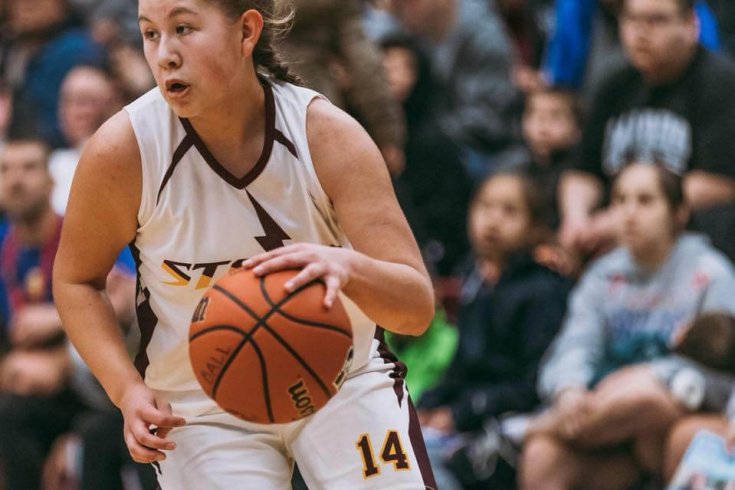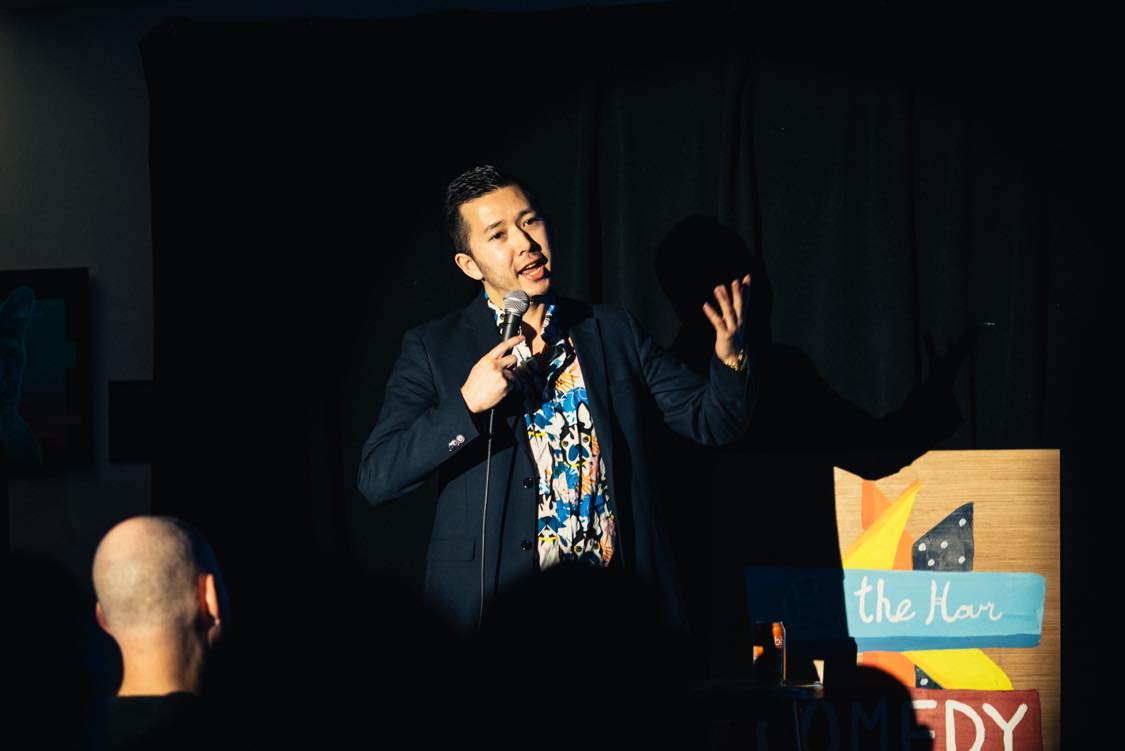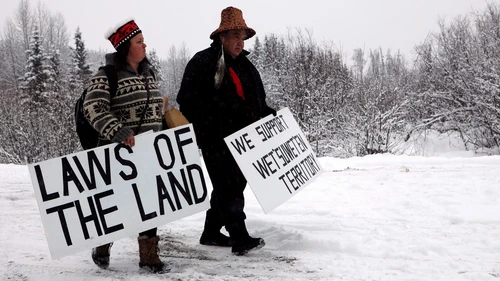MEMPHIS DICK CATCHES THE BALL at the top of the three-point circle in a triple-threat position. She can either shoot, pass, or use her speed and superb dribbling skills to drive to the hoop. The sixteen-year-old squares up against her defender, fakes a shot, then drives past her with ease. As the defence collapses around the five-foot-six point guard, Dick bounces the ball to a wide open teammate under the basket who then lays it up for an easy score.
This puts the Hesquiaht Storm, a team of teenage girls from the Nuu-chah-nulth people of Vancouver Island, up 4–0 over the Greenville Timberwolves to start the game. Dick runs back on defence, her shoulder-length hair pulled back in braids. Sweat drips down her forehead as she guards Greenville’s ball handler with relentless aggression for four ten-minute quarters.
It’s March, and I’m watching Dick and her teammates in the semifinals of the 2018 Junior All Native Basketball Tournament. I’m doing the play-by-play broadcast of the game on Canada’s First Nations Radio Network—a gig I’ve had for the past six years—and have a bird’s-eye view of Dick’s wizardry from the top of a packed gymnasium at North Vancouver’s Capilano University. To my left is a sea of Greenville fans dressed in green. To my right, a sea of Hesquiaht fans dressed in reddish-brown. I can’t tell you who’s louder. Fans bang drums in a thunderous rhythm when their team scores. The scene resembles a modern potlatch as much as it does a sporting event.
There are eighty-three teams this year and more than 1,000 youth representing First Nations from throughout British Columbia.
As with every tournament, there is tribal pride on the line and a legacy dating back more than fifty years that represents much more than a sport to these communities.
Though the sport as we know it was created by Canadian educator James Naismith in 1891, basketball hasn’t always been embedded in BC First Nations culture. But for Indigenous youth today, it is just as much a part of their day-to-day lives as hunting and fishing were for their ancestors. “For all of us, basketball really became sacred,” says Tyson Touchie, a former player who joined the Storm as an assistant coach in 2017. (He still plays competitively on weekends.) “It’s entrenched in our culture.”
Jocelyn Dick sits in the bleachers to my right, beaming with pride. Her daughter’s speed and defensive tenacity is tough to match by girls her age. Memphis’s poise on the court reminds of me of players in their twenties and thirties whom I’ve seen lead teams to championships at the adult All Native Basketball Tournament every February in Prince Rupert in northwestern BC. I wouldn’t be surprised to watch her dominate that tournament—which originated in 1947, when it was the Northern British Columbia Coast Championship Tournament, and eventually birthed the Junior All Native—as her skills advance in the years to come. But Memphis’s playing style is as particular as it is skilful—her mother tells me it sends chills down her spine.
“She really reminds me of my late father, J.B. Dick. I have pictures where you can see a lot of similarities [in body posture],” Jocelyn explains following the Storm’s 48–38 victory over the Timberwolves. “I see my dad in the way that Memphis dribbles and her intensity on the court.” The next day, Memphis’s team would head for the championship game, the same stage that J.B. Dick starred in for so many years.
Many other Nuu-chah-nulth people have remarked on the uncanniness of Memphis’s game. It’s like she’s carrying the spirit of her grandfather, they tell me. He, too, was a point guard, essentially the quarterback of basketball, the leader on the court. Memphis has heard the comparisons ever since she started playing basketball, at age eleven. She tells me that’s why she displays the number fourteen on her Hesquiaht jersey—the same number J.B. wore. “People tell me he was legendary on the island,” she says with a dimpled smile after the semifinals game. “It makes me feel really good and proud of myself.”
The strange thing is, Memphis never met her grandfather. J.B. passed away from cancer eight years before his granddaughter was born. Yet Memphis somehow emulates the style of an ancestor she never saw play. And that’s what makes the All Native as a whole so special: it’s a reminder of who came before.
Read the rest of this feature on The Walrus.



